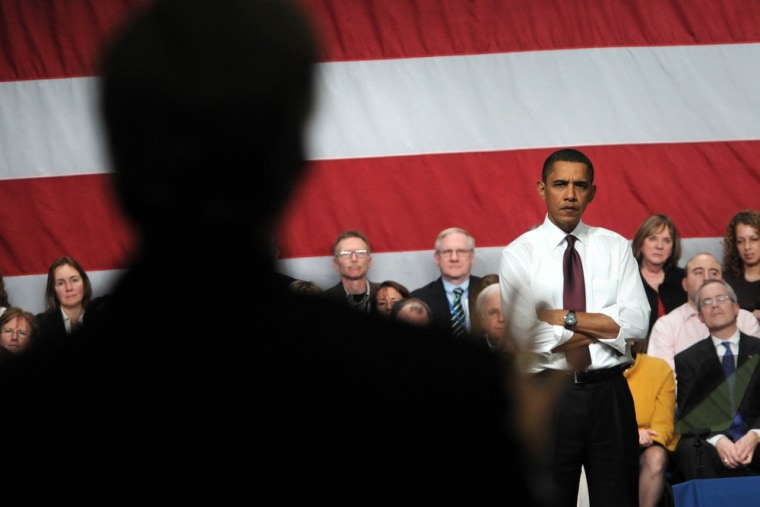Last fall, JPMorgan Chase Chief Executive Officer Jamie Dimon showed White House staff a chart comparing the percentage of Cabinet Secretaries and top aides with business experience under Administrations going back to Teddy Roosevelt. President Barack Obama had the fewest by far. The President's sometime adversarial relationship with business wasn't helped by the departures of Chief of Staff Rahm Emanuel and National Economic Council Chairman Lawrence H. Summers. Exasperated executives often consulted the two aides, even if the lines of communication weren't always clear. "The fundamental problem," says Steve Reinemund, former PepsiCo CEO and now dean of the Wake Forest University School of Business, "is the sense the President doesn't consider business a noble profession."
Democrats close to the Administration say the White House wants to make amends and will make its relationship with business a priority after the midterm elections. "I have every expectation as we go through the next several months that we are going to see a greater involvement with business than we have seen in some time," says Tom Daschle, the former Senate Democratic leader and an Obama ally.
The changes could include Obama's backing of proposals to cut payroll taxes temporarily, which could save companies billions, according to company executives, economic advisers, and White House aides. If his deficit commission in December recommends a debt-shrinking package of spending cuts and tax code changes, including corporate tax reform, Obama may support it, the people say. The White House may also consider naming a CEO to a Cabinet job if one opens up or may give someone business finds credible the role of counselor, with a wide-ranging portfolio, they say.
Daschle says Peter M. Rouse, Obama's new chief of staff, who has few business connections after spending most of his career managing the staffs of Democratic lawmakers, plans to be more accessible to corporate executives. "I don't think there's any question that he's aware of that criticism and aware of the need to be more interactive and engaged with the business community," says Daschle, Rouse's former boss. "I would not be surprised at all if you saw evidence of that quite soon."
By many objective measures, most businesses are thriving and should have little to complain about. Corporate profits rose to a record $1.38 trillion in the second quarter, according to the St. Louis Federal Reserve. The Dow Jones industrial average is up more than 38 percent since Obama took office.
So why the criticism? "There is a venerable tradition of business being antagonistic to Democrats, even in instances when the policies are advantageous to them," says Fred I. Greenstein, a professor emeritus at Princeton University and author of books on Presidential leadership. The strain between the Administration and business "was similar for FDR, which was the period of the last great reregulation of the economy," says Bruce Buchanan, a professor of government at the University of Texas at Austin, referring to Franklin D. Roosevelt's New Deal. "And there is an element of hurt feelings to it as well, which surprises me." Despite numerous meals with business leaders, the President seems to approach the relationship in a detached fashion, as if he were checking off a box, say executives who requested anonymity in order to speak freely.
Austan Goolsbee, the President's top economist, will try patching up relations in an Oct. 13 meeting in New York with business leaders. A rapprochement, however, will not occur until after the midterm elections, when the Administration will know the strength of the Republican opposition in Congress. That timing also will help Obama avoid looking like he's giving Wall Street a pass just when he's trying to turn the Democratic base out to vote. At an Oct. 4 meeting of Obama's economic advisory board, Laura D. Tyson, a former Clinton Administration economist, suggested not renewing the Bush tax cuts for top earners and using the savings to pay for a temporary cut in Social Security taxes. At the same meeting, Obama said he'd be "very interested" in lowering the top corporate tax rate, now 35 percent, so U.S. companies aren't at a disadvantage against overseas rivals.
Business should be prepared to make trade-offs. Cutting corporate taxes, for example, would likely be paired with closing loopholes that companies use to lower their tax rate so that any proposal is revenue-neutral. Business was unwilling to accept such a trade-off in August, when Obama proposed giving companies tax breaks for research and capital investment. The U.S. Chamber of Commerce and the Business Roundtable rejected that because companies' overseas taxes would increase to offset the cost. "The new taxes would negate the intended effects of these new policies," Business Roundtable Executive Director Larry Burton said on Sept. 8. Says Princeton's Greenstein: "You never get everything you want."
The bottom line: After the November elections, the White House plans to try to make up with business following months of strained relations.
